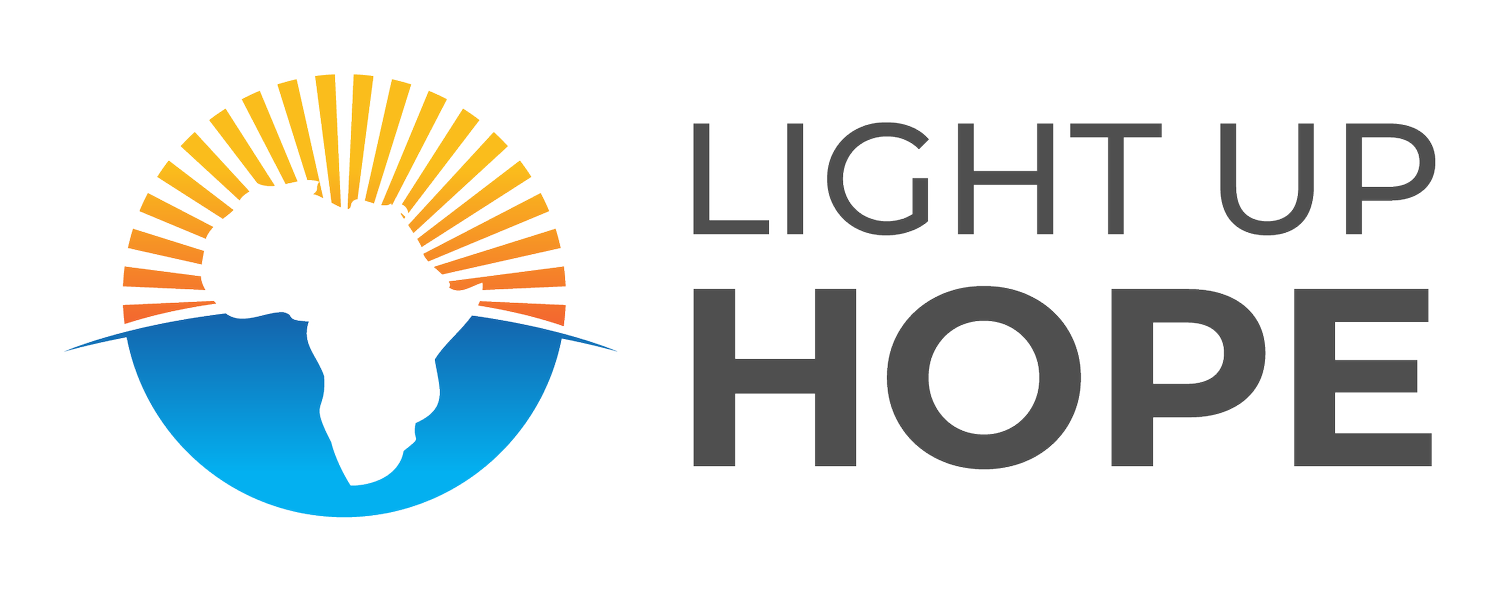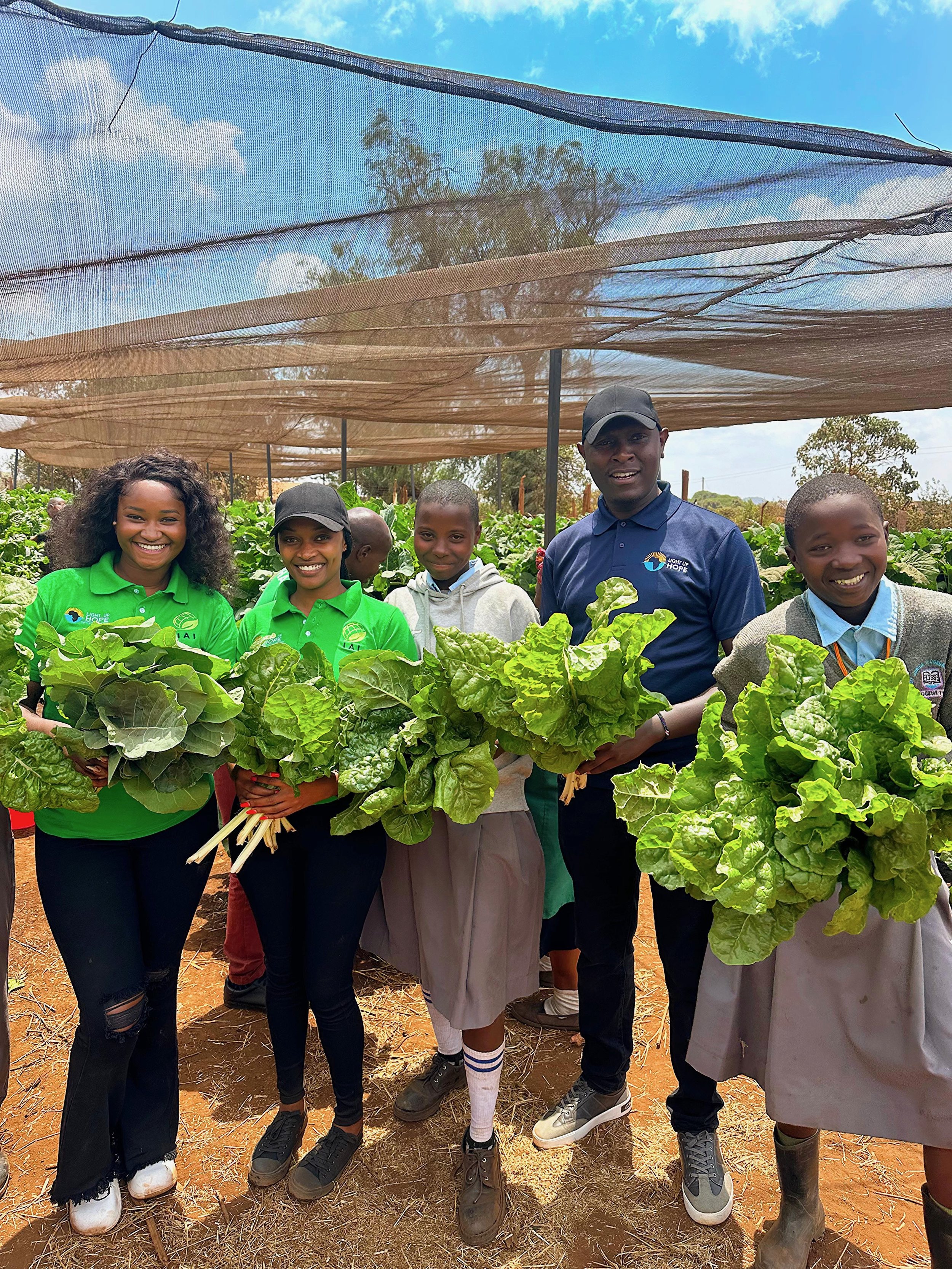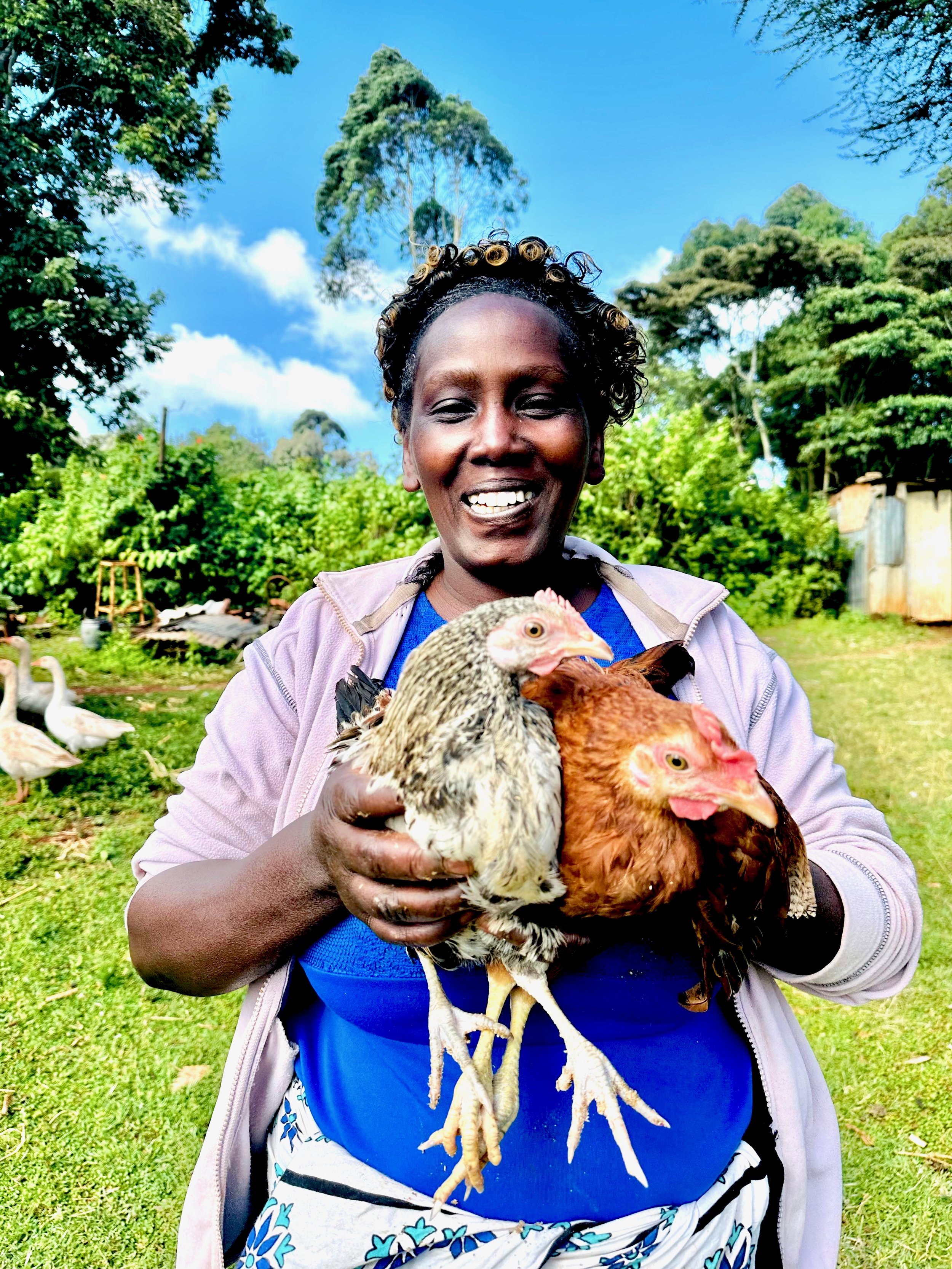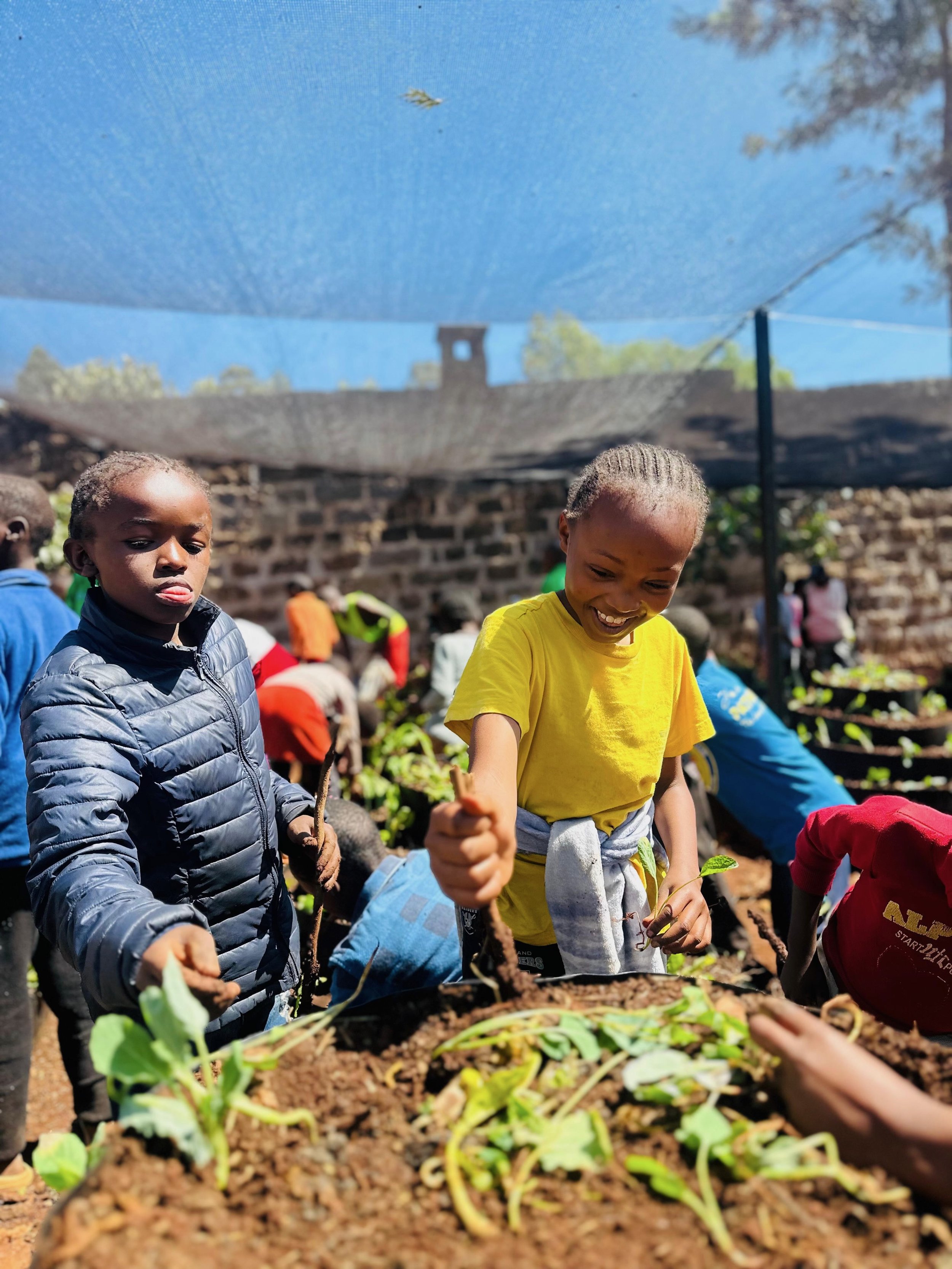Lighting a path out of poverty through sustainable agriculture and female empowerment
Currently in our school feeding program we are implementing project Wezesha, in 26 out of our 209 schools. Wezesha is a drought friendly agriculture project focused on school kitchen gardens that collaboratively impacts the economic resilience of the Maasai pastoralist community and increases the sustainability of our school feeding program.
By spring-boarding off the Kenyan curriculum which encourages student agricultural projects, we are able to encourage both school and home food security by teaching students and their parents how to grow their own food. This project also heavily focuses on female empowerment through village based savings and loan projects and female focused workshops for the historically disadvantages female Maasai community.
THIS PROGRAM PROVIDES:
Establishment of drought friendly vertical gardens providing fresh vegetables for school meals and educational opportunities for students.
Chicken farming, providing learners with at least one egg per month, contributing to protein intake.
Engagement of 4K Club members training for students to successfully replicated gardening techniques at home, improving household food security.
Tree planting and training of climate change ambassadors
Women empowerment on financial management and sustainable agriculture.
Introduction of deep tillage technique for a maximized agricultural yield.
70%
Teachers report that students are more engaged in class activities and exhibit higher cognitive abilities and absenteeism has dropped by 70%
15%
The introduction of fresh vegetables and poultry products has significantly diversified student meals, addressing key nutritional deficiencies. Malnutrition rates among students decreased by 15%, leading to noticeable improvements in their health and energy levels.
800
Women empowered in sustainable agriculture, female focused workshops and village based savings & loans
The pastoralist communities in Kenya have long struggled with food security, education, and gender inclusion issues. The region's arid climate and frequent droughts have made food security a major concern. Traditional pastoralism has been the primary livelihood, but climate change has worsened water scarcity, affecting both humans and livestock. Gender inequality is another significant issue, with a deeply patriarchal structure limiting opportunities for women and girls. Droughts exacerbate vulnerabilities, leading to exploitation and marginalization. The economic and food insecurities have directly impacted education outcomes, particularly for girls. School dropout rates rise during drought months as students seek food and water.
To address the challenges this community faced, Light Up Hope introduced a school feeding program, ensuring that every child receives a nutritious meal; improving attendance, concentration, and overall well-being. Building on the success of the feeding program, Light Up Hope in collaboration with Ideal Africa Initiative launched the “Wezesha Project” to create a sustainable solution by integrating drought resilient-smart agriculture, poultry farming, and female empowerment. Through the project, schools and families can produce their own food and have a new income source, creating sustainability and fostering long-term resilience.
Wazesha Women’s Group Starting their Village Savings and Loan
In Their Own Words
Glory to Glory Women Group
One of the womens groups benefitting from the female empowerment intiatives of Wezesha
he Glory to Glory women’s group in Upper Matasia is made up of hardworking women who have always sought ways to improve their livelihoods and support their families through agricultural practices. Many of them were interested in poultry farming but hesitated to venture into it due to fear of disease outbreaks, high mortality rates, and financial losses. Without access to the right training and support, poultry farming remained a high-risk endeavor in their eyes.
Another major challenge they faced was a lack of market knowledge. Even those who had successfully raised chickens or produced eggs were unsure how to sell their products effectively. This resulted in them ending up by selling at low prices due to a lack of bargaining power or struggling to find consistent buyers.
Through a training session conducted by Light Up Hope on 20th February 2025, the women were equipped with essential poultry management skills to help them overcome these challenges. The training focused on preventive measures, including biosecurity, vaccination, and proper feed formulation to ensure optimal growth and disease resistance.
To ensure poultry farming became a sustainable venture, marketing strategies were also introduced. The women learned about egg pricing, identifying potential buyers, and maintaining consistent production to maximize profitability. This knowledge gave them the confidence to see poultry farming as a business opportunity rather than just a small-scale activity. Since the implementation of the Wezesha project, some women have taken the initiative to start poultry farming at home. Their daily involvement in poultry caregiving has positively impacted their spirits, reinforcing the belief that with the right measures in place, success is possible. With zero mortality so far, they have gained confidence in their ability to manage poultry farming effectively.
Through this initiative, the Glory to Glory women’s group is not only learning poultry management but also gaining the tools to improve their livelihoods, support their families, and uplift their community. Their journey is a testament to the power of knowledge, empowerment, and resilience in overcoming challenges.
Make a Difference





